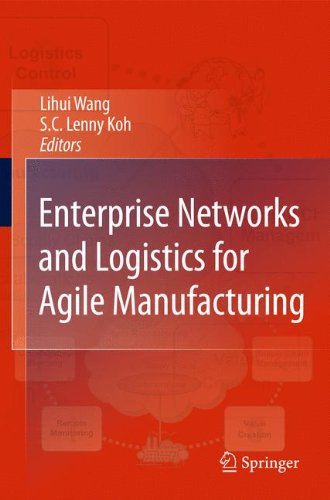

Most ebook files are in PDF format, so you can easily read them using various software such as Foxit Reader or directly on the Google Chrome browser.
Some ebook files are released by publishers in other formats such as .awz, .mobi, .epub, .fb2, etc. You may need to install specific software to read these formats on mobile/PC, such as Calibre.
Please read the tutorial at this link: https://ebookbell.com/faq
We offer FREE conversion to the popular formats you request; however, this may take some time. Therefore, right after payment, please email us, and we will try to provide the service as quickly as possible.
For some exceptional file formats or broken links (if any), please refrain from opening any disputes. Instead, email us first, and we will try to assist within a maximum of 6 hours.
EbookBell Team

4.8
84 reviewsEnterprise Networks and Logistics for Agile Manufacturing presents a focused collection of quality chapters on state-of-the-art research efforts in the areas of enterprise networks and logistics, as well as their practical applications towards agile manufacturing. With the increasing decentralisation of manufacturing systems and outsourcing of processes, more robust and practical approaches and systems are needed to support agile manufacturing operations. Enterprise Networks and Logistics for Agile Manufacturing consists of two major sections: the first presents a broad-based review of the key areas of research in enterprise networks and logistics; the second focuses on an in-depth treatment of a particular methodology or system relevant to the book title. Examples include: • sustainable green supply chain; • value creation and supplier selection; • extended enterprise network management; • reverse logistics; and • innovative supply chain systems. The authors take into account the need to pose intellectual challenges while retaining a balanced approach in terms of scope versus depth and theory versus applications. Enterprise Networks and Logistics for Agile Manufacturing can be beneficial to academic researchers, practicing engineers and managers, and graduate students with an interest in any manufacturing sectors. It can enable them to better understand the present state and future trends of research in this important area, in order to position themselves strategically for future challenges as we enter the era of agile and distributed manufacturing.